“So you don’t know the name of the people who owned the farm, do you? Or where they moved to?”
“A farm that used to be here? No way, sorry. I didn’t even know a farm used to be here.”
Bennie thought a minute. A neighbor might know where the family had moved, but there were no neighbors in sight. And the post office might have a forwarding address, but they’d be closed now. She got another idea. “Who’s the developer of these homes?”
“Simmons Brothers.” The toothpick twisted. “They’re outta Jersey.”
“Where in Jersey, do you know?”
“Someplace fancy.”
Bennie avoided the Jersey joke. Bruce Springsteen was from Jersey, so she loved the entire state. “Princeton?”
“Princeton! That’s it.”
“Thanks, I appreciate it.” Just then a yellow Hummer squeezed through into the gate. “Tallyho!” Bennie and the guard called out in unison, and they both waved.
She scooted back to the Saab, grabbed her cell phone, and called Princeton information. They found the number and connected her to Simmons Brothers Developers. The developer would know from whom they’d bought the tract of land, and if they wouldn’t tell her, she’d have to go to the office of the recorder of deeds. The owner would be public record. She waited nervously for the call to connect, then got a recording: “You have reached the headquarters of Simmons Brothers Developers. Our office hours are eight to five…”
Bennie pressed End and tossed the phone aside. She’d have to wait until tomorrow.
She threw the Saab into gear and took off, cruising to make sure there were no neighbors left. Night had fallen, but Bennie could see how much the terrain had changed. Streetlights lined the newly paved roads, and large homes rose from formerly verdant horse pastures. Chandeliers shone through curved Palladian windows in the darkness, and the air didn’t smell of manure anymore, which wasn’t necessarily an improvement. The shiny brown horses had been replaced by shiny brown Jaguars. She took a left and right, then stopped at a light. She signaled for a right turn and was about to head toward the highway when she saw a handmade sign stuck into the new curb by the side of the road.
MACK’S TACK SHOP CLOSEOUT-EVERYTHING MUST GO, it read, with a hand-drawn picture of a horse. Bennie considered it as the Saab’s breathy engine idled. A tack shop was where they sold stuff for horses, wasn’t it? The family that had owned the farm where her father had lived had owned horses. Maybe someone at the tack shop would know the family, and maybe even where they’d moved. Also Bennie’s father had been their caretaker. Maybe he’d gone in there for hay or whatever food horses eat. It was possible. Bennie switched her blinkers to signal left, and when the traffic light turned green, followed the hand-drawn arrow on the sign.
Giddyap!
Bennie got to the tack shop fifteen minutes before nine o’clock, the closing time on the door. It was a small and chummy store; three small rooms joined together, with a plain green rug, and no-frills fluorescent lights on the ceiling illuminating a dwindling supply of horse supplies. At least, Bennie assumed it was horse supplies, since she was from Philly. A golden retriever was the closest she’d come to wildlife.
“Be with you in a minute!” called out a young girl in a green polo shirt that read MACK’S TACK. Her dark ponytail swinging, she hit the keys on the cash register with a rhythmic beat, hunka-hunka-hunka, and was concentrating too hard to look up. “I’m just cashing out. Can you hang in there for two minutes?”
“Sure,” Bennie said, and looked around to kill time. To her left, on a wall of Peg-Board hooks hung a few ropes of leather straps looped around horse bridles, and to her right, the Peg-Board held a group of silvery metal things she guessed must be the bits, some qualifying as cruel and unusual punishment. Orange crates of shiny stirrups lined the floor, and a funny odor emanated from an open basket of weird brown cookies.
The cashier behind the counter glanced up. She had intelligent blue eyes behind her glasses and her nametag read Michelle. “Thanks for being so patient.”
“No problem. You’re the first person perceptive enough to call me patient.” Bennie crossed to the counter, a rectangular wooden affair beside a magazine rack filled with titles like Dressage, Practical Horseman, and Equus . Next to the cash register sat a bin of clear soaps labeled Soapy Ponies, apparently because little toy ponies were cryogenically frozen inside. Bennie picked the last one up with a pang. This could be her business in a few weeks. “So you’re going out of business, huh? All the horse farms gone?”
“Yeah,” the girl said with a sigh. “The county got a new board of supervisors and everybody sold. The land goes for two hundred thousand dollars an acre now. No horses, no tack.”
“I’m sorry.”
“It’s sad, but people gotta live somewhere.” Michelle shrugged.
“Actually, I’m looking for someone who used to live around here, a family who used to own one of the horse farms nearby. It stood where the development is now, Hunt Country Estates. This would be about two years ago.”
“I don’t know.” The cashier shook her head, setting her ponytail swinging. “I’ve only worked here a few months.”
“Damn.” Bennie was tired of saying damn all the time. It just didn’t go far enough. “They had horses, and a caretaker, and I was guessing they came in here for their horse stuff, or for horse food, like hay. Don’t horses eat hay?” She was pretty sure horses didn’t eat Iams.
“They do, and grain, but we’re not feed or hay dealers. We sell tack, bridles and saddles, and gift items like books, mugs, and computer games.” The young woman gestured helpfully at a shelf behind Bennie.
“Well, do you have records of customers, or mailing lists I can look at? I know the family’s address, but not their name.”
“No, I think any mailing lists are all packed up, if the owner even kept them. He’s retiring, and our lease is up in two weeks, then we’re outta here. The mailing lists wouldn’t have helped anyway, they were only in order of names. If you didn’t know their name, you’d have to look through every entry.”
“I’ve done dumber things,” Bennie said. “You think the mailing lists have been sold to anyone? It would seem like too valuable a thing to throw away.”
“Maybe Janet would know. She’s worked here forever.” Michelle gestured behind Bennie, to a petite older woman walking toward them with a thick key ring that jingled closing time . Her gray hair was cut in a neat feathery bob, and with her green Mack’s Tack polo shirt she wore loose jeans and tan Birkenstocks. The cashier waved her over. “Janet, you know what happened to our mailing lists?”
Bennie turned around. The older woman has worked here forever. “Or did you know the family who owned the horse farm that became Hunt Country Estates?”
“Hi, I’m Janet, and sure, I knew the Rices,” the woman answered, and Bennie’s heart leapt up.
“The Rices? They lived on Owen Road? They had a horse farm?”
“Of course, Peg Rice came in here all the time. A very active horsewoman, even at her-our-age. She hunted regularly with her son. They even hunted in Ireland, with the Galway Blazers.” Janet thought a minute. “Yes, they had a thoroughbred and an old paint pony, Buddy. Cute, and a good little mover. The pony was her daughter’s. She was a pony clubber.”
She clubbed ponies? Bennie knew that wasn’t right. Horse people had a language of their own. She was feeling more left out than St. Amien.
“And Peg’s husband had the Apps. Four Apps.”
Читать дальше
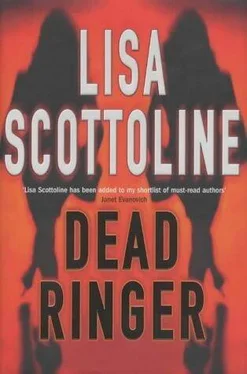
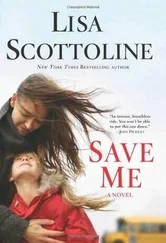
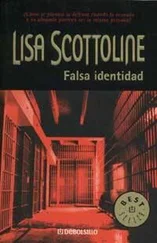
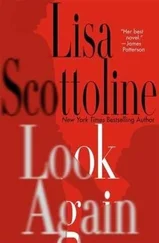

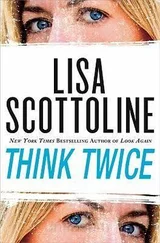
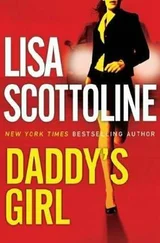
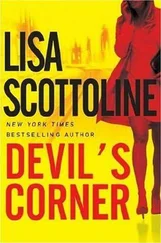
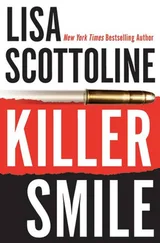
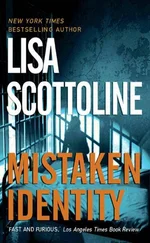
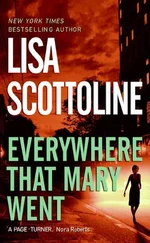
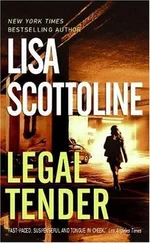
![Джеймс Чейз - Safer Dead [= Dead Ringer]](/books/430347/dzhejms-chejz-safer-dead-dead-ringer-thumb.webp)